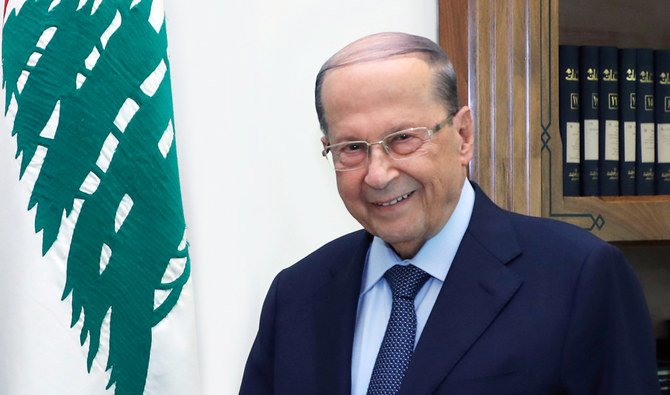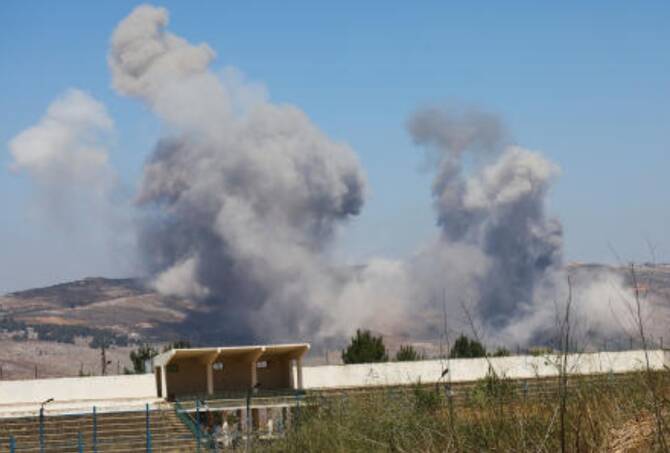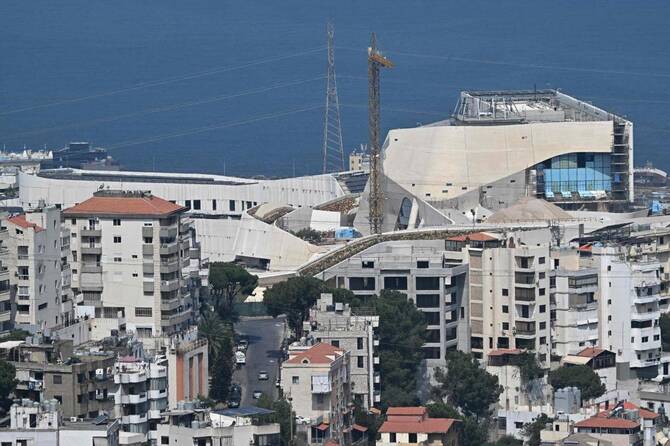BEIRUT: Lebanese President Michel Aoun welcomed the pope’s arrival in Iraq on Friday, saying he hoped it would be a “push toward establishing the genuine peace” that people in the region needed.
Pope Francis is in Iraq from March 5-8. It is the first time a pope has visited the country, and the trip is one of the most complicated the Vatican has had to organize because of security concerns and the pandemic.
People in Lebanon followed the pope’s arrival on local TV, and Lebanese journalists flew to Iraq to cover the event.
President Michel Aoun expressed his hope in a tweet that the visit would be a “push toward establishing the genuine peace that Iraqis, as well as all the other peoples of the region, need.”
He tweeted: “Welcome Pope Francis to the land of the East, the land that has always brought together civilizations, religions, and cultures.”
Lebanon’s Prime Minister-designate Saad Hariri described the visit as historic in all “spiritual, cultural, and human dimensions” and a message to the whole region about the importance of interfaith dialogue and the “protection of Muslim-Christian coexistence.”
Hariri tweeted: “We look forward to receiving the pope in Lebanon.”
Marada party leader Suleiman Frangieh said the papal visit was a message of peace and dialogue between religions and an establishment for Christians on their land on the basis of coexistence and common faith.
The Maronite Catholic Patriarch of Antioch Bechara Al-Rai was not at the papal reception in Iraq.
Walid Ghayad, a spokesman for the Maronite Catholic Patriarchate in Lebanon, said that Al-Rai had excused himself from participating.
“The patriarchate has no eparchies or parishes in Iraq, in addition to the spread of the COVID-19 pandemic,” the spokesman told Arab News. “As the pope will travel a lot inside Iraq, Patriarch Al-Rai does not want to cause any inconvenience to the measures taken for the visit. The Assembly of Catholic Patriarchs and Bishops in Lebanon had invited Pope Francis to visit Lebanon some time ago, and the pope said he was eager to visit Lebanon, that Lebanon deserved a special visit, and that he would see when to visit.”
Al-Rai called the pope’s Iraq visit “great, historic, and the greatest evidence of reestablishing the value of Iraq, this historical land that has its religious, civilizational, and social role.”
“The pope has his way to heal wounds,” he added. “He wants to assure the Iraqi people that by praying with them and carrying their cause to the whole world, they will send together messages of peace and union, especially through the meeting that will take place in Najaf to emphasize the fraternal bond between humans.”
Pope Benedict XVI visited Lebanon in July 2013 for three days, with his trip coinciding with developments in the Arab Spring.






















